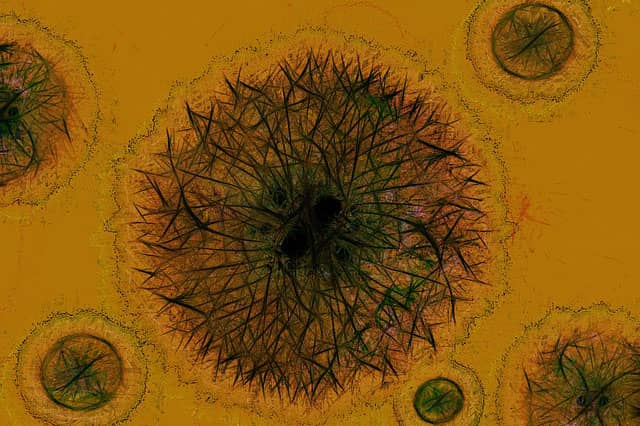Written by Rebecca Varghese

Just when we thought we studied every part of the body and were only digging for deeper truths, shit happened. Literally. Scientists are slowly discovering the potential of faecal matter as a viable treatment for hard to cure conditions like hereditary obesity and infection by Clostridium difficile. Yes, you got that right, poop could be the answer to just a few of our many problems. Who would have thought that your PB&J sandwich would be even better a second time around, but for someone else? (Ew, I know.)
To clarify, the medical community places value in the live organisms found in your poop. A variety of bacterial populations line the gut which conduct food breakdown, metabolism, nutrient absorption and immunological protection [1]. These microbiota, or symbiotic microorganisms, are incredibly important to our well being on many levels and can wreak serious havoc on the body if they are not present in the correct proportions. Effects of the Fermicutes (F) and Bacteriodetes (B) ratio, two of the three main intestinal microbiota phyla, have been studied thoroughly and are helping scientists understand that there is more than what meets the eye. For instance, a higher proportion of F has been associated with slow metabolism and increased risk of obesity. This ratio has been proven to change in not only the short term, but also over the course of one’s lifetime suggesting that even the intestinal microbiota mature with age [2]. A few patients struggling with their weight, despite working hard to control it, opted to rebalance their F: B ratio by receiving a healthy faecal transplant. Since the gut environment is conducive to intestinal flora thriving, the transplanted bacteria will grow in the host’s intestine to the correct proportions. Interestingly enough, the same corrected ratio can also be found in a patient immediately after performing the lap-band procedure [5].
One of the many reasons why a community of flora dwindles can be an antibacterial response. Increased consumption of antibiotics can destroy the perfect ratio by wiping the intestinal lining clear of all bacteria, as is the case in Clostridium difficile infection. [3]. C. diff entails a nasty bout of bloody runs, uncontrollable weight gain and severe abdominal pain. It is a frustrating disease to deal with, since it usually arises after several rounds of prior intestinal illness most frequently treated with antibiotics, further depleting the gut of all microbiota. At this stage, antibiotics are no longer effective and patients are often left with limited, low-success treatment options. In the past five years, faecal matter transplants (FMT) have become the answer to C. diff and similar conditions since it replenishes the barren lining with healthy bacteria through a relatively low cost and low risk procedure [3].
Despite FMT’s great success, it is still in the investigative stages and requires more long-term studies. One of the bigger questions our health care system may have to address in the future with regards to FMT is whether the donation should be treated like a drug treatment or an organ transplant [4]. The hope is that as interest in this therapy increases, scientists can understand the exact mixture of bacteria that needs to be cultured, manufactured and administered to improve human health. As crazy as it may seem, healthy poop is in demand. Like they say: one man’s trash is another man’s treasure.
Resources:
1. Ewelina Rebizak, Katarzyna Sierant, Krzysztof Łabuzek, Bogusław Okopień Pol Merkur Lekarski. Fectal Transplantation the Future Therapy? 2015 Aug; 39(230): 73–76.
2. Mariat, D., O. Firmesse, F. Levenez, Vd Guimarăes, H. Sokol, J. Doré, G. Corthier, and J-P Furet. “The Firmicutes/Bacteroidetes Ratio of the Human Microbiota Changes with Age.” BMC Microbiology BMC Microbiol 9.1 (2009): 123. Web.
3. McKenna, Marynn. “Why Would Anyone Get a Fecal Transplant? Watch a Brother and Sister Explain.” Phenomena Why Would Anyone Get a Fecal Transplant Watch a Brother and Sister Explain Comments. N.p., 2015. Web. 13 Nov. 2016.
4. Weil, A. A., and E. L. Hohmann. “Fecal Microbiota Transplant: Benefits and Risks.” Open Forum Infectious Diseases 2.1 (2015): n. pag. Web.
5. Human Physiology, E109 -Dr. D. German. Spring 2016, University of California, Irvine.
6. Holmes, Andrew, Laurence Macia, and Stephen J. Simpson. “Poo Transplants And Probiotics – Does Anything Work To Improve The Health Of Our Gut?” IFLScience. N.p., 20 Sept. 2016. Web. 13 Nov. 2016.